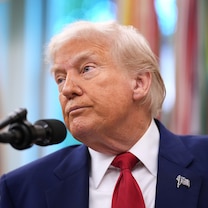Jordan's Queen: Pope Controversy Reflects Prejudice Against Islam
Sept. 21, 2006 — -- Jordan's Queen Rania Al-Abdullah believes that Muslims have been victims of stereotypes and that Pope Benedict XVI's recent comments about Islam underscore the prejudice many feel worldwide.
In a Sept. 12 address at the University of Regensburg in Germany, Benedict cited the words of a Byzantine emperor who characterized some of the teachings of the Prophet Muhammad as "evil and inhuman," particularly "his command to spread by the sword the faith."
The pope said Wednesday he did not mean to malign Islam when he quoted the emperor, but did not issue a direct apology.
Some Muslim leaders who were offended by his remarks still want a apology from Benedict.
Rania, the world's youngest queen, said she believed that the pope's comments and the reaction they sparked reflected an ongoing misunderstanding of Islam and Muslims.
"People were incensed by it," she said of the comments. "I think that that highlights the undercurrents of suspicion and mistrust that are existing in our world."
But the queen also said that the religion of Islam shouldn't be judged by some Muslims' outrage.
"You cannot define the entire religion of Islam based on some of its most misguided and extreme followers and likewise with Christianity," she said.
"There will always be extreme elements in any religion, but we really have to focus on the majority of the moderates, because they represent the true essence of that religion."
Rania said the pope's apology was enough for some Muslims.
"We've seen some positive reactions from the Muslim world of people feeling that he has explained his position," she said.
Rania is in New York City today to meet with former President Clinton and world leaders at the Clinton Global Initiative, a conference in New York City that has brought people together to brainstorm tangible solutions to issues affecting the world.
The mother of four told Diane Sawyer on "Good Morning America" that she believed stereotypes prevented Western and Eastern worlds from understanding one another.









